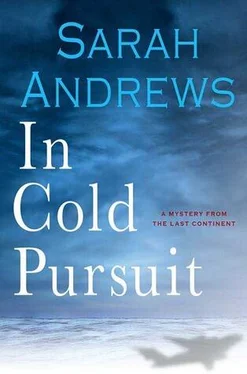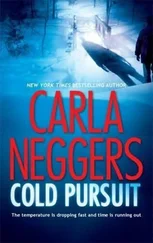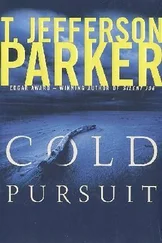Marilyn knew from years working with the Airlift Wing that Hugh preferred his caffeine fix in the form of cola and Waylon drank only water. One thing he liked about Antarctica was the ready supply of purified water that came out of the reverse osmosis system down the hill at the desalinization plant.
The three majors sat quietly together.
“Okay, this is what we’ve got,” Marilyn said, breaking their meditative silence. “They had eight souls on board: Vanderzee, his graduate students Schwartz and Lindemann, Sheila the cook, two guys out of Fleet Ops—Dave Fitzgerald and the guy they call Wee Willy—and Calvin Hart. Oh, and of course, the deceased. They call for a replacement Gamow thirty-six hours after we pull the blaster out. It takes us six hours to get it to them, but they never find it, or so they claim. Waylon, you saw it this year when they dug it up.”
Waylon twisted in his chair. “Yeah, the bundle was intact. Medical rig, pallet, fuel drum, and tracking beacon. The chute was buried underneath it, all crumpled up. It was absolutely not the result of a chance trick of the wind. No way.”
Hugh said, “And the beacon had been disabled.”
“Disconnected,” said Waylon.
“You’re sure,” said Marilyn.
“Damn certain sure,” Waylon affirmed. “And here’s the thing: it wasn’t like it had been smashed by chance or yanked apart by an amateur. Whoever did it not only turned it off, but knew how it worked, and he had to know what the thing was in the first place. The wires were neatly disconnected. So it was either ex-military or someone with electronics experience.”
“But how did it all get buried?” asked Hugh. “I mean, all that weighed something. Was it all still rigged together?”
“Yes. The cargo straps were still in place. So you’re right, it was heavy. Wrong Way, did you get into the loadmaster’s records on that?”
Marilyn nodded. “It was rigged to exceed four hundred pounds. And have you ever tried to push a pallet when it was loaded? It’s not like it’s on skis.”
Hugh said, “I’ve looked up the weather records. The wind was blowing from the camp toward the place where it was buried, but we dropped nice and low to minimize drift. Even if we were off in our calculations, someone still had to move that mass three hundred meters at least. So we’re still talking major effort. With apologies to the fairer sex, Marilyn, I think that eliminates the cook.”
“Unless she wasn’t working alone,” Marilyn said.
Waylon scratched his chin. “I hadn’t thought of that. You’re right, we haven’t considered the conspiracy angle. We keep thinking it was one person acting alone. That rather opens the field.”
They all looked at each other.
“They had a snow machine out there,” said Marilyn.
Waylon pondered this. “Man, I would not like to try to drag a bundle with one of those hogs in that weather. Give me a nice, warm cockpit any day.”
“Right,” said Hugh. “So any way you slice it, we’ve got a defeated bundle. So it comes down to this: which one of them had the technology or the know-how to a) find it in full blizzard conditions, b) bury it, and c) defeat the beacon while he was at it? Surely that’s got to narrow the field a little, now, doesn’t it?”
Waylon said, “I’m still thinking ex-military.”
‘And trained in navigation,” said Marilyn.
Hugh gave her a grin. “That would be your department. What would it take?”
She thought a while. “Well, if he knew to listen for a beacon, and had the technology for that, and had GPS…”
Hugh swatted his knee. “Just a few ‘ands’ there, eh? Surely if we can crack into the records—”
“Which we can’t necessarily do, Hugh.” Waylon said.
“Always the pessimist. Surely when we crack into service records, this guy will glow in the dark.”
Waylon shook his head. “Hugh, this isn’t a load of mousetraps this time. We’re talking cutting the chain of command, we’re talking special favors, we’re talking military service and Raytheon personnel documents. That’s not exactly according to Hoyle, my man. Just what do you think is the likelihood of pulling that off? And then you’ve got to figure out how to get the information into the hands of someone who can do something with it. What are you thinking, the colonel’s going to phone the feds and say, ‘We think you got the wrong guy?’ Nice way to make us all very popular.”
Hugh stood up. “I’ve got that all covered,” he said, his eyes bright with excitement. “Remember Doris over in IT? She and I go back a ways. And once we get that information, she can pass it to Valena.”
They all stared at each other awhile.
“Have a heart, Hugh,” said Marilyn. “She’s a nice kid, and perhaps she’d like to live to grow old.”
“You got any better ideas?”
“No.”
“Then let’s get started.”
SHEILA TUTTLE WAITED AT THE AIRLOCK DOOR AT BLACK Island Station to greet the arriving traverse crew. She was blond and heavily freckled and muscular and almost six feet tall and withstood the gale without a parka, but she had to shout to be heard over the wind, her Australian accent twisting around their ears. “Ye’ll want to take your gear out to the bunkhouse now, before it blows any harder.” She gestured toward a smaller structure a hundred meters away that was anchored to the rock by stout cables. “Then get on inside the station here, and we’ll talk about ye dinnah!”
All but Valena and Dave ignored her first instruction and instead headed straight into the station house muttering words like, “Cocoa,” and “Whiskey.” Dave was busy on the back of the Delta setting up the hose to drain the water tank into its counterpart inside the station.
Sheila turned toward Valena. “So this is y’ chance, woman!” she roared. “They’s only eight bunks out there, they’s five of ye, and I got three more already staying there while they dick around with the transmitter. Go on out there and get a lower bunk before these louts double back on ye!”
Valena grabbed her gear and turned to regard the bunkhouse and the hundred yards of wind-scoured volcanic rock that lay between her and it. It was a prefabricated trailer of sorts, an unadorned box made of naked plywood with a few square windows, mounted on a chassis that rode on skids instead of wheels. The cables that held it to the rock were as big around as her arms. Beyond it, through a parting in the ragged clouds, a short stretch of the ice-encrusted Transantarctic Mountains gleamed coldly in the chill evening sunlight.
On cue, the wind increased its roar and colossal buffeting. In the foreground stood a pair of wind generators. The angle of each generator was governed by a heavy spring that flexed with increasing wind, feathering the blades as the wind grew too strong for the mechanism. The current blow had laid them back within thirty degrees of horizontal. “How hard is it blowing?” yelled Valena.
“Sixty miles per hour,” replied Sheila, at the top of her voice. “If ye so fascinated by meteorology, ye can watch our digital readout in the station house. We like it better than watching TV, and as ye can see by all these satellite dishes here, we’ve got the best reception on the continent. Now, git! I’ll be waiting for ye inside; it en’t a fit day out for idle chitchat.”
Valena staggered off across the ground toward the bunkhouse. She had to adopt an awkwardly broad stance so that she could lean her shoulder into the wind and yet have a leg outboard to catch herself should the gale suddenly slacken and let go of her mass. At the steps to the bunkhouse, she had to brace herself again to heave the door open. She could imagine the people who had delivered the structure to this lone prominence trying to decide which way to mount the door: into the wind, where it would be torn off its hinges, or against it, where it would take Charles Atlas to open it? Or had they not thought at all and merely jammed it in where the ground happened to be level?
Читать дальше












